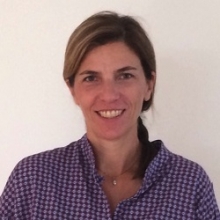CEE Seminar: Emerging and Persistent Organic Pollutants in Aquatic Environments - An Ever-growing Problem

Laboratory of Aquatic Chemistry
School of Environmental Engineering
Technical University of Crete, Greece
Abstract: Water quality protection remains a major environmental and policy challenge faced by many industrial as well as developing nations. In particular, the occurrence and fate of trace amounts of a wide range of anthropogenic organic contaminants in aquatic environment continues to escalate concerns over their potential for ecological and human health effects. Besides the well-known persistent organic pollutants, a range of emerging organic contaminants and their transformation products attract considerable attention. These pollutants result from changes in manufactured chemicals, advances in analytical techniques or perhaps because of more detailed monitoring.
This contribution will summarize several of our investigations over the past few years, which focus on the detection and identification of the fate of both emerging and persistent organic pollutants in water and treated wastewater. The fundamental concepts of the analytical tools used will be presented, and the overarching challenges we face for quantifying their low concentrations in water will be discussed. The occurrence and fate of anthropogenic organic contaminants in different types of water will be then presented. Case studies will include the ability of microplastics to act as transport vehicles for organic pollutants, our recent results on an emerging topic dealing with the environmental impact of used tobacco products in aquatic systems, and the photochemical transformation of brominated diphenyl ether flame retardants in an unusual photo-reaction media-like ice.
Bio: Elia Psillakis (EP) is a water chemistry professor at the School of Environmental Engineering, Technical University of Crete, Greece. She received her degree in chemistry,summa cum laude, from the Universitè Montpellier II Sciences et Techniques du Languedoc in France in 1994 and her doctorate from the the University of Bristol, U.K., in 1997. In 2007, she was awarded a Fulbright research scholarship and spent it at Caltech. Her work focuses on monitoring and studying the fate of emerging and persistent hydrophobic organic contaminants in water and treated wastewater. To date, her investigations have resulted in one patent, five book chapters, 84 publications in ISI Journals, ~ 6,400 citations, an ISI h-index=40, and three top-cited article awards. She is a senior associate editor for the Journal of Separation Sciences (Wiley) and a member of the editorial advisory board of Analytica Chimica Acta (Elsevier) among other journals. In 2019, the European Chemical Society appointed her as the leader of the Sample Preparationa Task Force. Psillakis has been the principal investigator of different funded research projects and has acted as a research collaborator for many others. From 2014-2016, she acted as the deputy rector of Academic Affairs and Research at the Technical University of Crete and is currently the director of Graduate Studies at the School of Environmental Engineering. In 2012, she was the first university professor in Greece to initiate a series of large-scale STEM activities.
Share
Upcoming Events
-
MSE Special Seminar: Architecting 3D Complex Materials for Sustainability
-
MSE Special Seminar: Decarbonizing Industries for a Climate-resilient Future - From Renewable Energy to Sustainable Material Recovery
-
MAE 298 SEMINAR: Technology Developments for FIR Bolometric Detector Focal Plane Assemblies
-
CBE 298 Seminar: The Wisdom of the Crowd: Watching Bacterial Collectives (Re)shape Themselves
-
CEE Seminar: BIM and the Digital Twin
